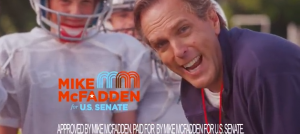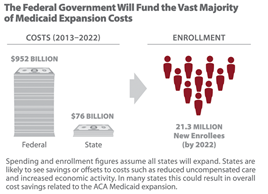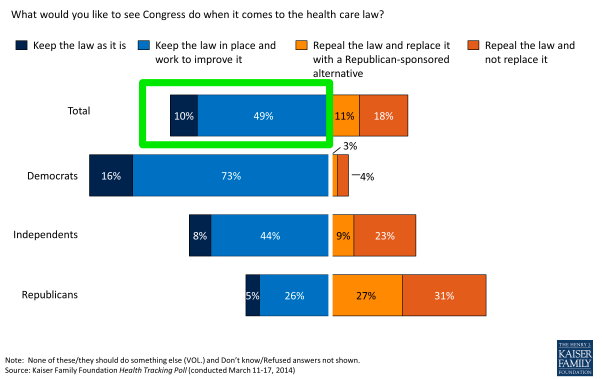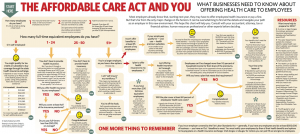As the next iteration of Trumpcare/Ryancare is finalized by warring conservatives, it’s fair to demand that Democrats share their post-Obama vision for health care.
Yes, Democrats need to be fighting efforts to repeal and replace the increasingly popular Obamacare/Affordable Care Act (ACA) system with Trumpcare/Ryancare. Though the ACA is the spurned love child of the Heritage Foundation, Orin Hatch, Newt Gingrich and Mitt Romney, it’s much more humane than Trumpcare/Ryancare, which would cause at least 24 million Americans to lose their Obamacare health coverage, and many more if states choose to further weaken protections.
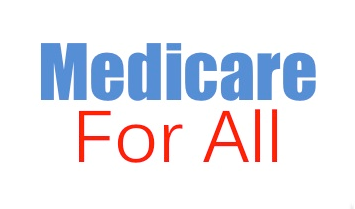 But for the long haul, Democrats need to set their sights higher than Obamacare. They must become full-throated champions for allowing Americans the option of buying into the Medicare system. Here are five reasons why:
But for the long haul, Democrats need to set their sights higher than Obamacare. They must become full-throated champions for allowing Americans the option of buying into the Medicare system. Here are five reasons why:
Reason #1. Medicare is popular “government run health care.” For decades, Republicans have robotically vilified “government run health care” and “socialized medicine,” presuming that Americans agree with them that government will screw up anything it undertakes. And Democratic politicians have cowered in fear.
However, Medicare is a notable exception to that rule. While the private sector-centric Trumpcare/Ryancare has 17% approval and Obamacare has 55% approval, Medicare has the approval of 60% of all Americans, and 75% Americans who have actual experience using Medicare. It’s not an easy thing for a health plan to become popular, so Medicare’s relative popularity is political gold. Democrats need to tap into it.
Reason #2. Medicare is better equipped to control medical and overhead costs than private plans. Medicare has a single administrative system, while dozens of health insurance corporations have dozens of separate and duplicative administrative bureaucracies. That decentralized approach to administration is expensive.
Also, for-profit health insurance corporations have to build profits and higher salaries into their premium costs. For instance, the insurance corporation United Health Care, to cite just one of dozens of examples, pays it’s top executive $33,400,000. That’s 135 times more than the not-for-profit Medicare system pays its top executive, about $247,000.
Medicare also is large enough that it has a great deal of negotiating leverage. It could have even more if Congress empowered Medicare to more effectively negotiate pharmaceutical prices.
Because of all of that, the Center for Budget and Policy Priorities finds:
Medicare has been the leader in reforming the health care payment system to improve efficiency and has outperformed private health insurance in holding down the growth of health costs… Since 1987, Medicare spending per enrollee has grown by 5.7 percent a year, on average, compared with 7.0 percent for private health insurance.
So, if Democrats want to better control health care costs to help the economy and struggling Americans, the Medicare model offers the best hope for doing that, not the corporate-centric model that we currently are using.
Reason #3. A Medicare-for-All option is very politically viable. Most Democratic politicians understand that a Medicare-for-All option makes good sense policy wise, but shrug it off as politically infeasible. They’re dead wrong.
By a more than a 5-to-1 margin, Americans support having a Medicare-for-All option. An overwhelming 71% support it, while only 13% oppose it. If you won’t try to sell a proven progressive idea that is supported by a 5-to-1 margin, you have no business being in progressive politics.
While “government-run health care” has been a weak brand for brand for Democrats, they have a clear path for rebranding their agenda. Medicare brand equity is right there waiting for Democrats to take advantage it, if they’ll only open their eyes to the opportunity.
Reason #4. A Medicare-for-All option will expose private health corporations as uncompetitive. Right now, one of the Democrats’ biggest political problems is that too many Americans have been brainwashed by conservatives into believing that the private sector is always more efficient and effective than the public sector. In other areas that don’t involve “public goods,” that is true, but not with health insurance.
The best way to bust that “private is always best” myth is to allow Medicare to sit alongside corporate health plans in the individual marketplace. If American consumers choose Medicare over private plans, because Medicare proves itself to be the cheapest and best option, then the conservatives’ “private is always best” myth finally will be busted.
Reason #5. A Medicare-for-All option can serve as a bridge to the best health care model – a public single payer system. The research is clear that countries who have single payer health care financing have better and cheaper health care than the United States has with it’s substantially private sector based health care system. For example, the nonpartisan, nonprofit Commonwealth Fund finds:
Even though the U.S. is the only country without a publicly financed universal health system (among 13 high-income countries: Australia, Canada, Denmark, France, Germany, Japan, Netherlands, New Zealand, Norway, Sweden, Switzerland, the United Kingdom, and the United States), it still spends more public dollars on health care than all but two of the other countries. …despite its heavy investment in health care, the U.S. sees poorer results on several key health outcome measures such as life expectancy and the prevalence of chronic conditions.
Obscure research reports like this aren’t proving persuasive to American voters. But when younger Americans are able to see for themselves through their shopping that Medicare is cheaper and better than private health insurance options, Medicare will build a bigger market share. After Medicare earns a larger market share, Americans may ultimately be much more open to shifting from a Medicare-for-all option to a Medicare-for-all single payer system that the United States ultimately needs in order to compete in the global marketplace and become a healthier nation.
It’s not enough for Democrats to only expose the reckless Trumpcare/Ryancare model and defend Obamacare status quo. They must also promote a Medicare-for-All vision for moving America forward. With the current President and Congress, a Medicare-for-All option obviously can’t pass. But aggressively promoting over the coming years will improve the chances that this Congress and President will soon be replaced and that a Medicare-for-All option can be enacted in future years.

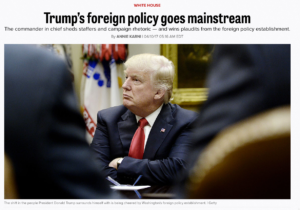 After a few TV-friendly bombings this week, many in the mainstream media and pundit-o-sphere are falling all over themselves to declare President Trump mainstream. That’s right, it seems our Muslim-banning, emoluments-pimping, Russia-colluding, climate change-denying, serial-lying President is now pretty much equivalent to Obama, the Bushes, the Clintons, Reagan and Ford.
After a few TV-friendly bombings this week, many in the mainstream media and pundit-o-sphere are falling all over themselves to declare President Trump mainstream. That’s right, it seems our Muslim-banning, emoluments-pimping, Russia-colluding, climate change-denying, serial-lying President is now pretty much equivalent to Obama, the Bushes, the Clintons, Reagan and Ford. Let’s also remember that in the same week the media declared Trump mainstream, we learned that a federal judge
Let’s also remember that in the same week the media declared Trump mainstream, we learned that a federal judge 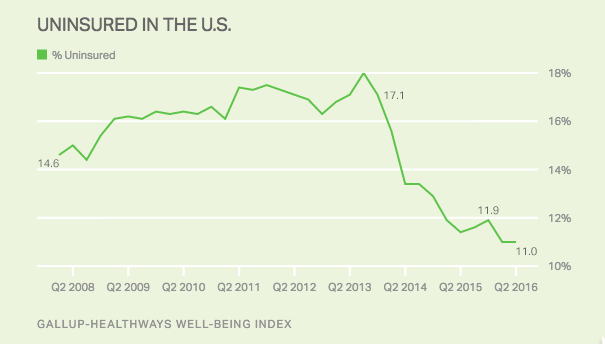 And despite years of heavily-financed and relentless attacks on the model, most Americans now have a
And despite years of heavily-financed and relentless attacks on the model, most Americans now have a
 Oh and then there was that super nonpartisan time when Governor Pawlenty, who was preparing to run against President Obama, enacted an executive order to
Oh and then there was that super nonpartisan time when Governor Pawlenty, who was preparing to run against President Obama, enacted an executive order to 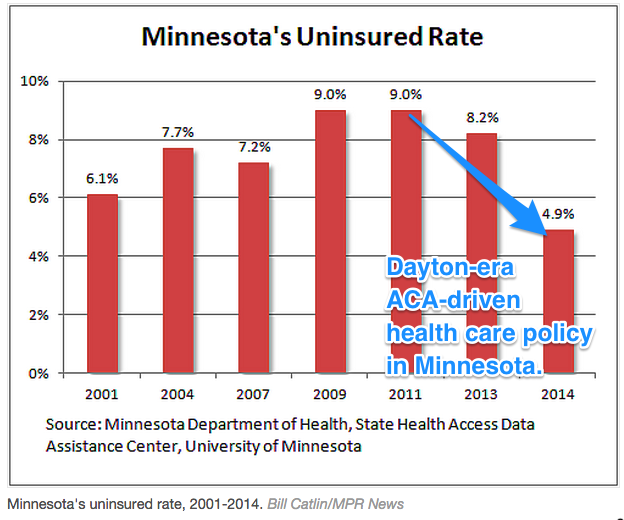

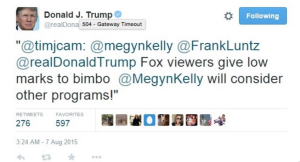 Maybe that’s because reporters are worried bullying candidates will give them the Megyn Kelly Treatment/Rebecca Quick Treatment. Maybe it’s because reporters don’t take the time to learn policy issues. Maybe it’s because reporters don’t respect voters’ intelligence enough to think that they will care about, or understand, policy issues
Maybe that’s because reporters are worried bullying candidates will give them the Megyn Kelly Treatment/Rebecca Quick Treatment. Maybe it’s because reporters don’t take the time to learn policy issues. Maybe it’s because reporters don’t respect voters’ intelligence enough to think that they will care about, or understand, policy issues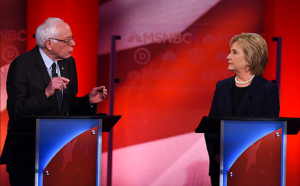 To hear Senator Hillary Clinton’s campaign tell it, you would think that there is absolutely no way to transition from the Affordable Care Act (ACA) world of today to an eventual Medicare-for-All world that her opponent Senator Bernie Sanders promotes.
To hear Senator Hillary Clinton’s campaign tell it, you would think that there is absolutely no way to transition from the Affordable Care Act (ACA) world of today to an eventual Medicare-for-All world that her opponent Senator Bernie Sanders promotes.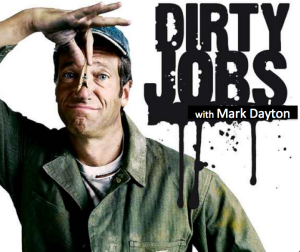 Governor Mark Dayton is Minnesota’s political version of Mike Rowe, the star of the Discovery Channel television show “Dirty Jobs.” Rowe’s show is all about him taking on difficult, disrespected and grotesque jobs that others avoid, such as being a sewer inspector, road kill scavenger, worm dung farmer, shark repellent tester, maggot farmer, and sea lamprey exterminator. Who knew that worm dung needed farming?
Governor Mark Dayton is Minnesota’s political version of Mike Rowe, the star of the Discovery Channel television show “Dirty Jobs.” Rowe’s show is all about him taking on difficult, disrespected and grotesque jobs that others avoid, such as being a sewer inspector, road kill scavenger, worm dung farmer, shark repellent tester, maggot farmer, and sea lamprey exterminator. Who knew that worm dung needed farming?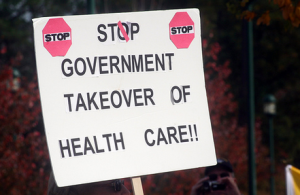 On the heels of the closing of the second year of open enrollment for Obamacare coverage, expect to hear a lot of “government takeover of health care” ranting from conservatives.
On the heels of the closing of the second year of open enrollment for Obamacare coverage, expect to hear a lot of “government takeover of health care” ranting from conservatives.
 Yet when GOP politicians endorse those two mutually exclusive positions, almost no political reporters note the absurdity of it. When reporters allow politicians to get away with simultaneously endorsing the part of Obamacare that outlaws pre-existing condition denials and opposing the part of Obamacare that mandates insurance coverage, they effectively allow those politicians to say something every bit as absurd as “I’m for capitalism, but I also support communism.”
Yet when GOP politicians endorse those two mutually exclusive positions, almost no political reporters note the absurdity of it. When reporters allow politicians to get away with simultaneously endorsing the part of Obamacare that outlaws pre-existing condition denials and opposing the part of Obamacare that mandates insurance coverage, they effectively allow those politicians to say something every bit as absurd as “I’m for capitalism, but I also support communism.”
 Note the tough, no-nonsense daddy image that McFadden’s political consultants are constructing.
Note the tough, no-nonsense daddy image that McFadden’s political consultants are constructing. 